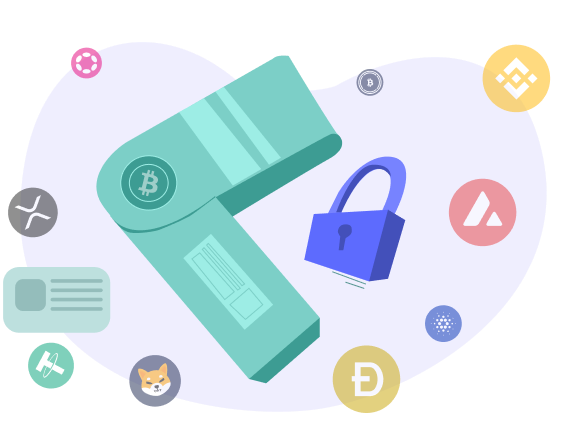Cryptocurrency Scams
What You Should Know About Cryptocurrency Scams
The term “crypto frauds” is well known. In fact, one of the leading causes of people’s skepticism toward virtual money is digital currency frauds. Although the question “Is cryptocurrency a scam?” pops up frequently, there’s no need to assume that all cryptocurrencies are fraudulent.
Nonetheless, it is undeniable that there are more scams involving cryptocurrencies than ever before. Since 2020, losses related to cryptocurrency crime have climbed by 79%. Cryptocurrency scams are the category of cybercrime that is expanding the fastest, according to the FBI.
In 2021, over half of the $680 million lost to bitcoin scams was taken from clients in the first few months of 2022. The end of 2022 should show rapidly increasing crypto crime rates.


Should You Use Cryptocurrency?
Is the solution to stay away from cryptocurrency? No. Anyone who lived through the 1990s can recall the widespread use of online fraud during the early stages of the internet. Imagine if people decided to stop using the internet due to the prevalence of internet crime.
Despite the dangers, the internet is a part of our daily lives. This holds true for cryptocurrencies as well. The convenience of using digital currencies suggests that they are most likely here to stay. Blockchain technology has expanded beyond the financial industry and is now applicable to a wide range of businesses, including the preservation of artistic rights via NFTs.
How can we utilize cryptocurrencies properly and prevent falling for cryptocurrency scams if we know that bitcoin and the blockchain are unavoidable? The answer is following cryptocurrency safety tips and knowing what to do if you suspect a bitcoin fraud. Finding specialists who can guide you toward cryptocurrency recovery is also essential for a successful claim.
Types of Cryptocurrency Scams
To stay informed about the online fraudulent activity out there so it can be avoided, here’s a list of some of the few most typical kinds of cryptocurrency fraud.


Crypto Mining Scam
The process of creating a new cryptocurrency is known as mining. Computers carry out complex mathematical operations in order to create a cryptocurrency.
Of course, a tech expert is required to understand the background of these processes. Despite the complexity, even those without advanced technical knowledge can take part in bitcoin mining thanks to the opportunity and availability of blockchain technology.
As a result, scams involving crypto mining grow exponentially. They target those who are ignorant or don’t understand the mining process and assure them of financial success. Regardless of the fact that there are many legal ways to mine cryptocurrencies, there are still many scams.
Crypto Romance Scam
Online dating is popular, but many people find more (or less) than they bargained for. The majority of us are aware of identity fraud schemes called catfishing.
Despite their best efforts to charm, persuade, and flirt, financial topics come up quickly. A few indicators of a crypto romance scam are a refusal to take part in live video chat and a persistent demand for money.


WhatsApp Crypto Scams
WhatsApp makes it easy to get in touch with friends, colleagues, and large groups of people. The majority of us have, however, experienced WhatsApp spam promoting get-rich-quick schemes. It’s crucial to realize that any legitimate financial provider won’t spam you on WhatsApp.
Another common form of WhatsApp cryptocurrency scam is one that starts on a different platform, such as social media, then persuades the target to continue the conversation on WhatsApp. These fraudsters believe they can get away with it as WhatsApp has virtually no fraud surveillance.
Instagram Crypto Scams
Instagram, Twitter, Facebook, and TikTok have become breeding grounds for crypto fraud. Instagram crypto scams are the most common. It’s important to have in mind that no legitimate crypto broker will use social media as their sole platform to get new users. It is advised to always be skeptical of any digital currency deal advertised on any social media platform.


NFT Crypto Scams
NFTs, or non-fungible tokens, were designed to reduce fraud and prove authenticity. These digital files can protect and prove the ownership of trademarks, documents, and artwork.
However, there are a lot of ill-intentioned users on the NFT market, and there are also lots of fake NFTs and NFT crypto scams. These include r ug pull frauds. The perpetrators seek for NFT investors, steal their money, and then disappear. Phishers will try to obtain your account information before hacking NFTs; this practice is known as “NFT phishing.”
USDT Crypto Scams
Stablecoins, such as USDT or Tether, are digital currencies backed by fiat money or other stable assets. One common type of USDT crypto scam is phishing. People receive messages saying they have won USDT valued at thousands of dollars, along with a link to claim the prize. Instead, the connection provides the con artist with all of their personal information.


Protect Yourself From Crypto Scams
Although many dangers exist on the blockchain, the following are some of those earlier-mentioned safety steps you can take to stay safe.
Use Strong Passwords and Two Factor Authentication
Never use your birthday, address, or the names of your children as your passwords. Be creative and choose a difficult-to-guess password. Request two-factor identification as well. It could take more effort, but it will protect your funds from cryptocurrency scammers.


Keep Most of Your Crypto in “Cold” Wallets
When it comes to technology, it may seem counterintuitive, but sometimes being low-tech is ideal for maximum security. To protect your cryptocurrency from hackers, keep the majority of it in “cold” or offline wallets.
Verify all Merchants and Broker Information
Avoid spending your cryptocurrency at unverified places. Verify all brokers and merchants. Make sure their names, addresses, licensing, and all information check out. Avoid them if they don’t provide all of this information.


Avoid Giving Out Sensitive Information
Despite the fact that hacking is a major concern, the majority of cryptocurrency scams use data that the victim voluntarily provides. This means you should protect your bitcoin wallet data and not share your codes or keys with anyone
Steps for Successful Crypto Recovery
Although no one can guarantee crypto recovery, you can increase your chances of getting your stolen funds back greatly if you choose to work with the right recovery team.
Sadly enough, the majority of crypto scam cases go unreported. This may be because people are under the impression that they can’t track down their funds on the blockchain and that fund recovery isn’t possible at all.


Flashrecoverysolution Will Help You Battle Crypto Scams
If you have lost money to financial fraud, be sure to contact the Flashrecoverysolution team. Our cryptocurrency investigations will provide proof to support your case and help you begin fund recovery.
Flashrecoverysolution can increase your chances of recovering your money thanks to our team’s extensive experience and knowledge of crypto monitoring as well as our work with law enforcement organizations from all around the world.
